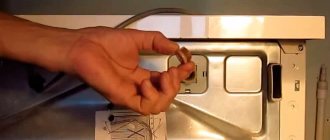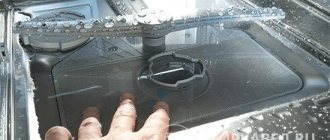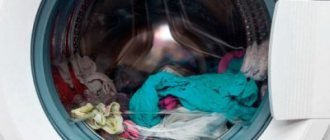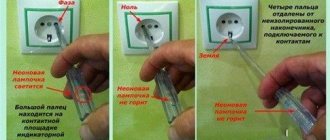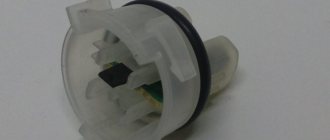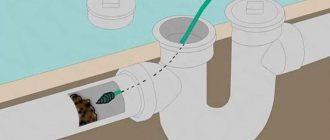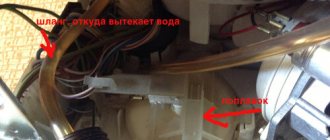Sometimes dishwashers don't leave dishes as clean as we'd like. Most believe that the reason lies in the hardware itself, and this may be true. But most often such problems are associated with factors that even a newly purchased dishwasher will not solve.
One of the first factors to consider when diagnosing a dishwasher is water hardness. Minerals such as calcium and magnesium in your local water supply play an important role in how well a dishwasher can clean dishes.
On the other hand, soft water that has little or no dissolved minerals can also cause problems. Although this is not as critical as in the case of hard water, it can still cause a lot of trouble.
Dishwasher
Using both soft and hard water create problems that can be overcome by simply understanding the relationship between water hardness and detergent.
Phosphates and detergents
In recent years, it has become increasingly difficult to obtain clean dishes as phosphates are gradually being eliminated from dishwasher detergents. Phosphates are a man-made inorganic chemical that has been proven to pose a threat to the environment. In the United States, it is illegal to sell dishwasher detergents containing phosphates. The situation is similar in Germany, the Netherlands, Austria and a number of other European countries. Russia still has a long way to go in this direction, but the first steps are already being taken.
TIP:
Before loading dishes into the sink, separate the dishes into “dirty” and “relatively clean” dishes.
This way you can set cycles of different intensity. It is better to immediately set aside the dirtiest items for manual work; most likely, they would have to be washed. Detergents containing phosphates were not affected by the mineral content of the water. Like organic detergents, they dissolved food on contact. With natural detergents, everything is different - if they get into hard water, their effectiveness sharply decreases. Once in this water, the calcium and magnesium combine with the organic chemicals in the soap to form another chemical. The resulting chemical is lime, which forms the cloudy residue that eventually coats the dishes and the inside of the dishwasher.
Phosphates were the ideal chemical additive for detergents because they did all the work. They were suitable both for neutralizing the effects of water hardness and for dissolving nutrients. And since phosphates have been eliminated, detergent companies and consumers have been eager to figure out how to overcome these hard water and food residue challenges.
Dishwasher technical problems
Has your equipment stopped washing kitchen utensils, but there are no complaints about its use? This means that the parts have failed. You can check and inspect them yourself. If necessary, it is better to call a specialist for repairs.
Heater problems
Scale, overheating, and voltage surges can lead to breakdown of the heating element. In cold water, the quality of washing deteriorates, and some PMMs even stop the cycle without completing it. How to replace the heating element is described in one of the articles. Most often, a flow-through heater is installed, which is located in the circulation pump block. To check it you will have to disassemble the car.
Thermal sensor failure
The latest models use sensors that control the temperature of the water heating. As soon as it reaches the desired temperature, the sensor sends a signal to the module to turn off the heating element. Requires installation of a new element.
Problems with the circulation unit
A pump or motor causes the water in the chamber to circulate, delivering pressurized jets to the dishes. The motor winding may burn out, then the unit is completely replaced:
- Disconnect the machine from communications.
- Remove the plug from the socket.
- Remove all baskets from the hopper.
- Unscrew the drain filter and unscrew the bolts.
- Turn the equipment upside down or place it on the back wall.
- Remove the bottom cover. Be careful, a float sensor may be attached to it.
- You will see the circulation block and the heating element, pump and other elements attached to it.
- You will need to disconnect the parts, disconnect the wiring and remove the pipes.
- If the motor is faulty, replace it.
Electronic module failure
Since the control module controls the operation of all elements in the machine, it needs urgent repair or replacement. But only a specialist can solve this problem. Sometimes the cost of a new board is so high that it is easier to buy a new dishwasher. The element may break due to a power surge or moisture.
If your PMM has stopped doing its job efficiently, first of all take a look at the instructions. Make sure you use it correctly.
Watch the video on the topic:
What to do if you have soft water
One of the simplest solutions for hard and soft water is to vary the amount of detergent you use depending on the hardness of the water. Simply put, if you have soft water, you should use less detergent, and if you have hard water, you should use more.
To facilitate the cleaning process, the dishes must be stacked correctly
Since detergent practically does not turn into lime in soft water conditions, it is used for washing dishes. Manufacturers of dishwashers and detergents for them are developing their products. In this case, we take into account the fact that some products may be ineffective due to reactions with water of medium hardness. Because normal water hardness neutralizes some detergents, they develop soap dispensers and booster tablets.
TIP:
Don't store powdered cleaners under the sink - it's humid.
Throw away old, clumpy powder and use only fresh, dry powder. Keeping powders in an overhead cabinet where it will remain dry will extend its life. If you have soft water and use the usual amount of detergent, then know that you are using more than the conditions require. This leads to the problem - if there is too much detergent in the dishwasher, it will not be able to wash everything it needs, and soapy streaks will remain on your dishes. Excessive suds will also impair the performance of your dishwasher. When the water is too foamy, it weakens the cleaning ability of the dishwasher pump.
One easy way to check if your dishwasher is sudsing too much is to run it without any detergent. Let it run for a few minutes. Then open the door and look for foam on the surface of the water. If there is, you are using too much detergent for your type of water. The correct solution is to let the machine finish the cycle so that the remaining detergent is washed away, and then begin the next cycle, but using less detergent. This should greatly improve the efficiency of your dishwasher.
Poorly washes dishes on the top shelf
Users note that dishes located on the top shelf of the chamber are washed worse than the rest of the volume. This may occur due to the fact that objects on the middle and lower shelves block water from accessing the top one. And also in such a situation, it is worth checking the upper rocker for blockages.
Arrange kitchen appliances, keeping a small space between them, in accordance with the diagram given in the instructions. Do not exceed the recommended load and ensure that all items drain well. Do not place dishes that are not machine washable in the chamber.
What to do if you have hard water
Soft water is easier to deal with than hard water. Hard water is where the real challenge begins!
Since the combination of hard water and detergent creates soap scum, it is important to realize that some of the detergent you use will be wasted. You will have to make up for wasted detergent by adding more. How much more? This will depend on how rich your specific water is in minerals. The more minerals in the water, the more detergent you will need to add to find the balance. But either way, you don't need to use more than the dishwasher container can hold.
TIP:
Do not mix steel and silver items in the sink.
Simultaneous washing of two different types of metal in contact in a humid environment is an ideal condition for the formation of corrosion. The main difficulty with hard water is not only the cleanliness of the dishes, but also the formation of a white film. If such a film appears, it means that lime deposits have accumulated in the dishwasher that need to be cleaned. There are many ways to do this, but the simplest is to run an empty cycle by adding a glass of white distilled vinegar. This will dissolve any scale or food particles that may have accumulated in the dishwasher.
Low prices
| Service | Price |
| Diagnostics | |
| When ordering repairs | For free |
| In case of refusal of repair | 1 standard hour |
| Full product diagnostics (functionality check) | 2 standard hours |
| Major renovation | |
| Replacing the recirculation pump | 2.5 standard hours |
| Replacing the electric motor | 1.5 standard hours |
| Replacing the electrical harness | 2.2 standard hours |
| Replacement of housing elements | 2 standard hours |
| Repair of medium complexity | |
| Sealing or replacing pipes | 1 standard hour |
| Replacing the drain pump | 1.2 standard hours |
| Removing clogged drain pumps and hard-to-reach pipes | 1.2 standard hours |
| Replacing the solenoid valve | 1.5 standard hours |
| Replacing the heating element | 1.5 standard hours |
| Replacing the drying fan | 1.9 standard hours |
| Replacing the level sensor | 1.1 standard hours |
| Replacing the display unit, electronic module | 1.7 standard hour |
| Electrical circuit repair | 2 standard hours |
| Configuration (firmware) of the electronic unit | 2 standard hours |
| Replacement of signal lamps of the dispenser, front panel | 1 standard hour |
| Belt replacement | 1.1 standard hours |
| Cleaning the dryer | 1.5 standard hours |
| Replacing the drying heating element | 1.5 standard hours |
| Replacement of thermostat, drying timer, door lock | 1.5 standard hours |
| Removing Foreign Objects | 1.6 standard hour |
| Minor repairs | |
| Replacing the hook, hatch handle, hatch fastening, glass | 0.8 standard hours |
| Replacing the door seal | 1.6 standard hours |
| Opening the door | 1 standard hour |
| Replacement of the power button, capacitor, surge protector, power cord, repair of the KSMA indicator | 0.7 standard hours |
| Replacing the drain hose | 1.2 standard hours |
| Replacing the aquastop (hydrostop) | 1.2 standard hours |
| Minor repairs (without disassembling the machine) | 0.5 standard hours |
| Maintenance | 1 standard hour |
| Related | |
| Repair of units, modules | 50% of the price of new |
| Installation and dismantling of the built-in device | 1 standard hour |
| Cleaning the system | 1 standard hour |
| Markup coefficient | |
| Embedding | 1,8 |
| Premium model | 1,8 |
| Urgent departure (within 15 minutes) | 1,5 |
| Cramped working conditions | 1,5 |
| Any repairs involving complete disassembly of the product | 2,5 |
| Basic values | |
| Standard hour (rounded up to half an hour) | 1000 |
| Final provisions | |
| ● When repairing the control board, the technician takes the board, after the repair he returns it and installs it ● Spare parts and consumables are paid separately ● Travel outside the city - 40 rubles/km ● The final price of the repair is determined by the technician, based on the complexity of the breakdown and the volume of work performed | |
How to use limescale removers
Brands will not be advertised here, their choice is huge and let everyone choose the one that suits them experimentally. There are severe cases that will require a little more effort, but usually the steps below are sufficient.
Attention! Make sure your dishwasher is empty before following these steps!
- Start the cycle with an empty sink and wait until the PMM is full.
- Open the door and pour 1/2 cup of detergent into the bottom of the dishwasher. Wait until the cycle ends.
- After this, run another empty cycle to completely rinse the detergent out of the dishwasher.
In the most severe cases, more aggressive chemicals will have to be used. But if the process above with distilled vinegar is repeated once a month, then it won’t come to that.
Dishes are poorly washed in the PMM
The dishwasher may not cope with its tasks for a number of reasons, including:
- incorrect placement of dishes in the chamber;
- device overload;
- incorrect choice of washing program;
- errors in the selection of household chemicals;
- lack of car maintenance;
- technical issues.
To find out why the equipment washes poorly, it is necessary to diagnose it. For this purpose, most models provide a special program. The error code displayed on the panel can be deciphered using the user manual. There you will also find troubleshooting solutions.
Expert opinion
I work in the household appliance repair industry. Extensive experience in restoring washing machines and dishwashers.
Ask a Question
Some problems can be solved on your own. To repair serious damage, you will have to contact specialists.
Rinse aid
It is equally important to use rinse aids, especially with hard water. Rinse aids treat the outside of dishes so that water drains away, preventing clogging and staining. The product works on the same principle as “anti-rain” on car windows. By preventing water from getting on the glass, the product keeps the windshield clean, which ensures greater visibility when driving in the rain. Rinse aid works the same way, preventing water from getting on the dishes. Gravity will cause water to immediately drain from plates and mugs, reducing the chance of stains or filming, plus the dishes will dry faster.
White plaque
It's also a good idea to run some hot water down the kitchen sink before running the dishwasher. Modern dishwashers are becoming increasingly energy efficient, which means functional parts such as the heating element are made weaker to save energy. The heating elements are not powerful enough to heat cold water directly. By running a cycle with already hot water, the dishwasher may finish at a higher temperature, allowing excess water from the dishes to evaporate. With this approach, the dishes will dry faster, which in turn will reduce the likelihood of stains and cloudy films.
When to call a professional
Above we discussed the reasons for poor washing of dishes by a dishwasher, which are obvious and can be eliminated without contacting a service center. But there are times when you can’t do without calling a specialist.
- The water heater has burnt out. At the same time, the liquid does not heat up, and it is simply impossible to wash dishes with some stains with cold water.
- The circulation pump is faulty, as a result of which water is not supplied under pressure to the sprinkler nozzles.
- There is a malfunction in the rocker impeller, which is the mechanism that rotates the sprinkler. Therefore, the utensils are rinsed unevenly and are poorly washed.
- Inoperative temperature sensor (thermal relay). The task of the thermal relay is to collect information about the temperature of the liquid in the device and send it to the control module. In turn, the control module, after receiving data, turns on the heater or, vice versa, turns it off.
- A failure occurred in the software module. All components of the dishwasher are under his control. If it malfunctions, the PMM works incorrectly or stops altogether.
- The water transparency sensor is faulty. It is not available in all dishwasher models, but only in very expensive ones. Thanks to this sensor, the control module must receive data on the turbidity of the liquid. If the water is clear enough, the rinsing process can be stopped. If the sensor is faulty, the module does not receive the necessary data, and the dishwasher does not wash the contents well.
These faults should only be repaired by a qualified technician with knowledge and experience in this type of equipment. Only a specialist can diagnose and repair the device. If you try to do this on your own, you may get disastrous results, and even a specialist will not be able to correct the consequences of your actions.

